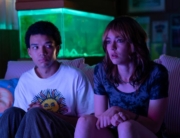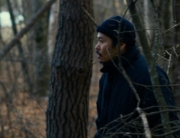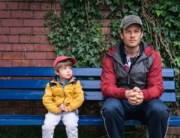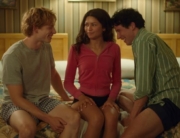At the 2012 BFI London Film Festival, My Brother the Devil scooped Best British Newcomer Award for Welsh-Egyptian director/screenwriter Sally El Hosaini. The film was developed in the Sundance screenwriters and directors labs where El Hosaini was mentored by Tiger Williams, writer of Menace to Society.
Teenage brothers Rashid (James Floyd) and Mo (Fady Elsayed) live with their traditional Egyptian family on a confining housing estate in East London. Rashid, a handsome, charismatic gang member, deals drugs on the streets of Hackney. He wants younger brother, Mo, an effortless academic, to excel at school and realize his potential, but Mo idolizes Rashid and aspires to follow his brother into the street trade.
Rashid’s prepares for a deal with his crew, DMG (Drugs, Money, Guns), while Mo’s desperate to run with them. Exasperated by Mo’s presence, Rashid sends him to do a drop off to get rid of him. Crossing hostile territory, Mo is mugged at knifepoint by minors from a rival gang. He’s stripped of the drugs, money, and his trainers before escaping humiliated.
This inciting incident sets in motion a revenge tale. but while El Hosaini teases the story in a seemingly predictable direction, she subverts expectations. While the gang plots revenge, Rashid enters an alternative world through Sayyed (Saïd Taghmaoui) a photographer introduced to him by his best friend, Izzy (Anthony Welsh), over a drug deal. After Izzy is tragically killed in crossfire, Rashid is determined that Mo should not be drawn onto “the roadside.” Turning to Sayyed for solace, Rashid is offered a way out, but the friendship calls into questions all his assumptions about his identity. Stepping off the curb and away from his life is not going to be so easy.
Among a mixed cast of professional and non-professional actors, the central performances are excellent. James Floyd is magnetic in every scene, and deserved his British Independent Film Award as most promising newcomer. As naive Mo, absolute newcomer Fady Elsayed’s vulnerability is painful to watch.
It took six years to get the film made, in part because the territory of urban gangs has been widely explored on U.K. TV and in low-budget features, but El Hosaini brings a fresh eye and authenticity. Set in an uncompromising world, against the clash of parental aspirations and the lure of criminality, El Hosaini’s story about brotherhood and courage elevate the film from the formulaic British urban gangster film. Her female eye excavates the complicated machismo of young British urban culture, the clashes of first generation Arab Muslim immigrants and their offspring, and boldly explores sexuality.
Setting the action on the council estate that El Hosaini lives in, and drawing from characters that she knows, the film feels faithful to the real-life experiences and multiculturalism of London’s inner-city gangs. The strong script, rich in contemporary, street slang benefited from the input of gang members to keep it real. The choice of locations creates an immersive experience captured by David Raedeker’s dynamic, beautifully composed cinematography. Tightly edited by Iain Kitching and with an evocative score by Stuart Earl, My Brother the Devil captivates until the very end when redemption comes from an unexpected angle.
Filmed over the summer of 2011, the production was underway when riots kicked off in Hackney and across London that August. The film was subject to an official citywide ban on shooting exterior scenes of youth conflict that could inflame a fragile situation. El Hosaini had no choice but to rewrite exteriors for interiors in order to complete the film. Perhaps this accounts for the occasional unevenness in the telling.
Dealing with universal issues of identity but rooted in an Anglo-Arab experience, the mature writing and direction of My Brother the Devil possesses a wonderful emotional truth about family that transcends the genre.







Writer-director Sally El Hosaini’s new movie, ‘My Brother The Devil,’ opens today in L.A. It is getting rave reviews and has deservedly won major film festival awards around the world. Get the story behind the film in my interview with El Hosaini and star James Floyd! And please share this link! Thank you. http://www.mrmedia.com/2013/04/my-brother-the-devil-will-shock-and-excite-the-hell-out-of-you-2013-video-interview/#.UV9KXYIW9Mr